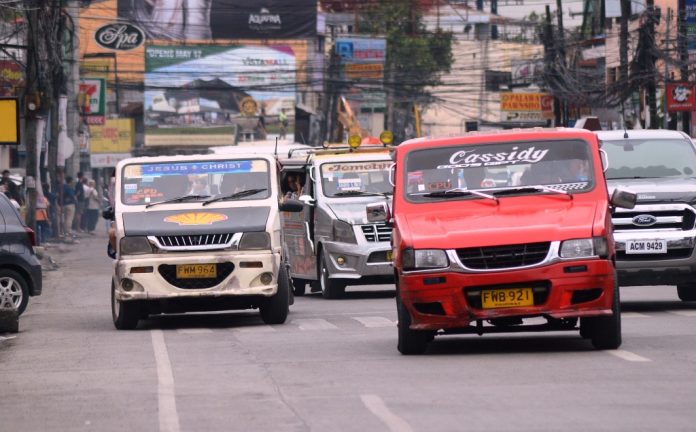
ILOILO City – While waiting for the approved P2 fare increase to take effect, transport groups in this city and Iloilo province would petition for an additional hike.
This time, they wanted a 50-centavo increase in fare for every succeeding kilometer after the first four kilometers.
This was not stated in their previous petition for fare increase, according to Raymundo Parcon, president of the Iloilo City Loop Alliance of Jeepney Operators and Drivers Association (ICLAJODA).
The Land Transportation Franchising and Regulatory Board (LTFRB) confirmed early this week having granted the petition for fare increase in this city and Iloilo province but for P2 only instead of what the drivers petitioned for – P5.50.
“Diri na lang kami mabawi sa succeeding kilometers,” said Parcon.
They would file a petition for the additional increase before this month ends and would seek the support of the Iloilo City Alliance of Drivers Association and Confederation of Iloilo Provincial Jeepney Owners and Drivers and Association.
The current minimum fare rate is P6.50 for the first five kilometers and P1.15 for every succeeding kilometer.
Parcon said there was a need to increase the fare because of the high inflation and series of oil price hikes. He also cited the Tax Reform for Acceleration and Inclusion (TRAIN) Law.
LTFRB must issue a new fare matrix for the new fare increase to take effect, added Parcon.
Without it, jeepney drivers enforcing the new rate could be accused of overcharging, he said.
“A P300 daily income is not enough for a jeepney driver nowadays,” said Parcon.
The TRAIN Law sets yearly increments in the excise tax on oil and fuel products until 2020. For diesel, it is P2.50 per liter this 2018, P4.50 per liter in 2019, and P6 per liter in 2020.
For regular and unleaded premium gasoline, in excise tax increment is P7 per liter this 2018, P9 per liter in 2019, and P10 per liter in 2020.
“If there is no increase in jeepney fare our drivers would suffer,” said Parcon. “They won’t be able to sustain the basic needs of their families because their daily collections are no longer enough.”/PN





